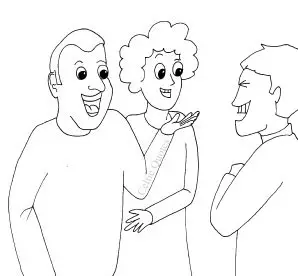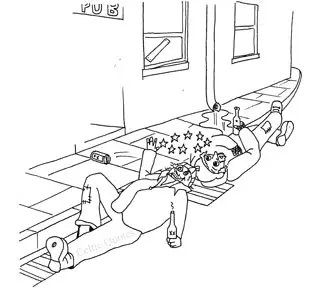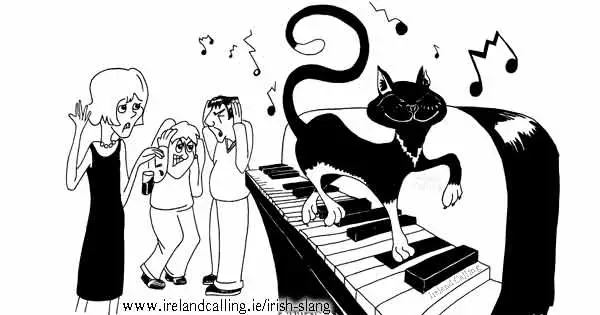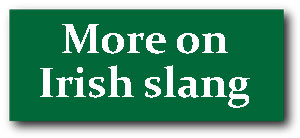Irish speech is peppered with slang words that can confuse visitors. What do you do when you hear words like gas, or cat, or pup being used in a way that seems to bear no relation to their normal meanings?
Well, no need to reach for your Irish language dictionary just yet. First, check out this brief guide to 10 of the more common words that may trip up the unsuspecting traveller.
Cat
The small animal, of course, but in slang it means something that looks, sounds or simply is absolutely awful. It’s short for cat malojan, which is probably short for the phrase, cat on a melodeon. You can imagine that a cat standing on a melodeon is likely to make an awful sound. That is probably where the idea came from. Now it’s used to describe anything people don’t like and think is terrible.
Codding
Nothing to do with fishing. It means joking, being playful. Someone may tease and then say: “Sure, I’m only codding.”
Culchie
May sound like it has something to do with culture but means exactly the opposite. A culchie is a country person. The word is often used by Dubliners to describe someone from outside the city. It’s also been extended to mean uncultured and lacking sophistication. In this way it’s used as a term of abuse, although some ‘culchies’ have embraced the term and use it to express their pride in their rural origins.
Gas
Yes, the stuff that fuels your cooker but in slang it means funny. “Ah it was gas altogether” means something was really hilarious. “He’s a gas character” means he’s a real comedian.
Yoke
Not the thing placed on a beast of burden, but just about any ‘thing’ at all. It’s a word used to describe something when you can’t think of the proper word. For example:
“Where’s the yoke for changing the TV channel.”
“What’s that yoke for?”
It can be used several times in the same sentence. “What’s that yoke they use to fix the yoke on the big yoke up the road there?”
It may seem confusing but most listeners will be able to guess the meaning from the context of the conversation.
Amadán
This is a word borrowed from Irish and means awkward and foolish, as in: “You clumsy amadán.”
Pup
An excellent word to describe young people who can be a bit cheeky, over-confident…the typical youngster who thinks he knows everything. Often used indiscriminately by older people to describe youngsters, whether good or bad.
“Dermot isn’t working hard at school.”
“He’s a pup!”
“Dermot has changed and is working hard now.”
“He’s still a pup!”
Stocious
Relates to drink. It’s pronounced stoshus. It can be a noun or an adjective. It you’re stocious, you’re drunk. If you’re stocious drunk, you’re extremely drunk. Young ‘pups’ (see above) will often try to outdo each other in how stocious they were the night before.
“I was stocious last night!”
“I was paralytic stocious!”
“I was legless, paralytic, stocious, stocious…and so on!”
Hames
To make a hames of something means to ruin it. If you try to build the Eiffel Tower out of matchsticks and it falls apart, someone might tell you “made a right hames of it”.
Grand
One of the most widely used words in Ireland. It can mean anything from OK to fine to excellent and all stops in between. It’s virtually impossible to have a conversation without this word being used several times. For example:
“How are you feeling?”
“Grand.”
“How was the film?”
“Grand.”
“I’ve made you some tea”
“Grand.”
“I’ve just won 100 million euros”
“Grand.”
“I’m marrying the Queen”
“Grand.”
One American lady told us that her Irish grannie used the word ‘grand’ so much, she thought it was the reason she was called grandma.
All images copyright Ireland Calling

